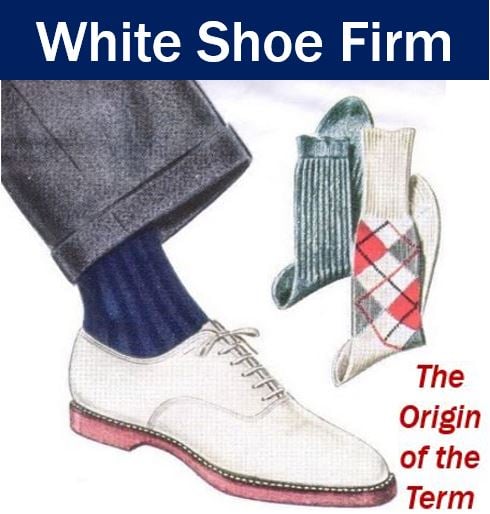What Is A White Shoe Law Firm

The legal world is often perceived as a complex ecosystem, with various firms specializing in different areas and catering to a wide range of clients. Among these firms, the term "white shoe" law firm often surfaces, evoking images of prestige, tradition, and power. But what exactly defines a white shoe law firm, and what makes them distinct from their counterparts?
At its core, the term "white shoe" refers to a specific segment of elite, historically influential law firms typically characterized by their long-standing history, prominence in corporate law, and a predominantly upper-class, white, Anglo-Saxon Protestant (WASP) heritage. Understanding these firms requires examining their historical context, core characteristics, and evolving role in the modern legal landscape.
Historical Roots and Evolution
The "white shoe" moniker is believed to originate from the early 20th century, referring to the white buck shoes commonly worn by wealthy Ivy League graduates who often populated these firms. These firms initially served the established industrial and financial elite, shaping corporate law and advising on major transactions.
Over time, while the WASP dominance has diminished, the legacy of these firms remains rooted in their tradition of serving large corporations and financial institutions. This history has shaped their culture, client base, and overall approach to legal practice.
Key Characteristics of White Shoe Law Firms
Several key characteristics distinguish white shoe law firms from other legal practices. These include their prestigious reputation, focus on corporate law, a selective hiring process, and a strong global presence.
Reputation and Prestige
White shoe firms are known for their high-profile clientele, often including Fortune 500 companies, major financial institutions, and governments. Their involvement in landmark cases and significant corporate transactions enhances their prestige within the legal community and beyond.
This reputation attracts top legal talent and commands premium billing rates.
Focus on Corporate Law
The primary focus of these firms is on corporate law, encompassing areas like mergers and acquisitions (M&A), securities law, banking and finance, and corporate litigation. They provide legal counsel to businesses on complex legal and regulatory issues, advising them on strategic decisions and representing them in legal disputes.
This specialization allows them to develop deep expertise and build long-term relationships with their corporate clients.
Selective Hiring and Culture
White shoe firms are known for their rigorous hiring processes, often recruiting top graduates from elite law schools. The firms emphasize academic excellence, strong analytical skills, and a commitment to professional development.
Historically, a certain social background was also considered, though this is increasingly less emphasized in modern hiring practices. Despite evolving demographics, the firms are still perceived by some to maintain a relatively conservative and hierarchical culture.
Global Presence
Many white shoe firms have established a significant international presence, with offices in major financial centers around the world. This global reach allows them to serve multinational corporations and advise on cross-border transactions, further solidifying their influence in the international legal arena.
They are equipped to handle complex legal matters spanning multiple jurisdictions.
Examples of White Shoe Law Firms
While there is no definitive list, some of the firms frequently cited as examples of white shoe law firms include Cravath, Swaine & Moore, Sullivan & Cromwell, Davis Polk & Wardwell, and Skadden, Arps, Slate, Meagher & Flom. These firms have consistently ranked among the top law firms globally, advising on some of the largest and most complex deals in history.
Their legacies are built on decades of legal expertise and influence within the business world.
Impact and Significance
White shoe law firms have a significant impact on the legal profession and the broader business community. They shape legal precedents, influence corporate governance practices, and play a crucial role in facilitating economic growth and development.
Their opinions and advice are often sought after by policymakers and regulators, given their deep understanding of complex legal and business issues.
However, criticisms have been leveled against them regarding their lack of diversity and potential conflicts of interest due to their close ties with powerful corporations. Efforts are underway within the legal profession to address these concerns and promote greater inclusivity and transparency.
The Future of White Shoe Law Firms
The legal landscape is constantly evolving, and white shoe law firms are adapting to meet new challenges and opportunities. Increased competition from other types of law firms, growing demands for diversity and inclusion, and the rise of new technologies are all factors shaping the future of these firms.
While the traditional image of the white shoe firm may be changing, their influence and expertise in corporate law are likely to remain significant for years to come.
Their ability to adapt to these changes while maintaining their core values will determine their long-term success.
As the world becomes more interconnected and complex, the role of skilled legal advisors will continue to be essential. The future trajectory of these firms will be watched closely by the legal community and the broader business world.


















